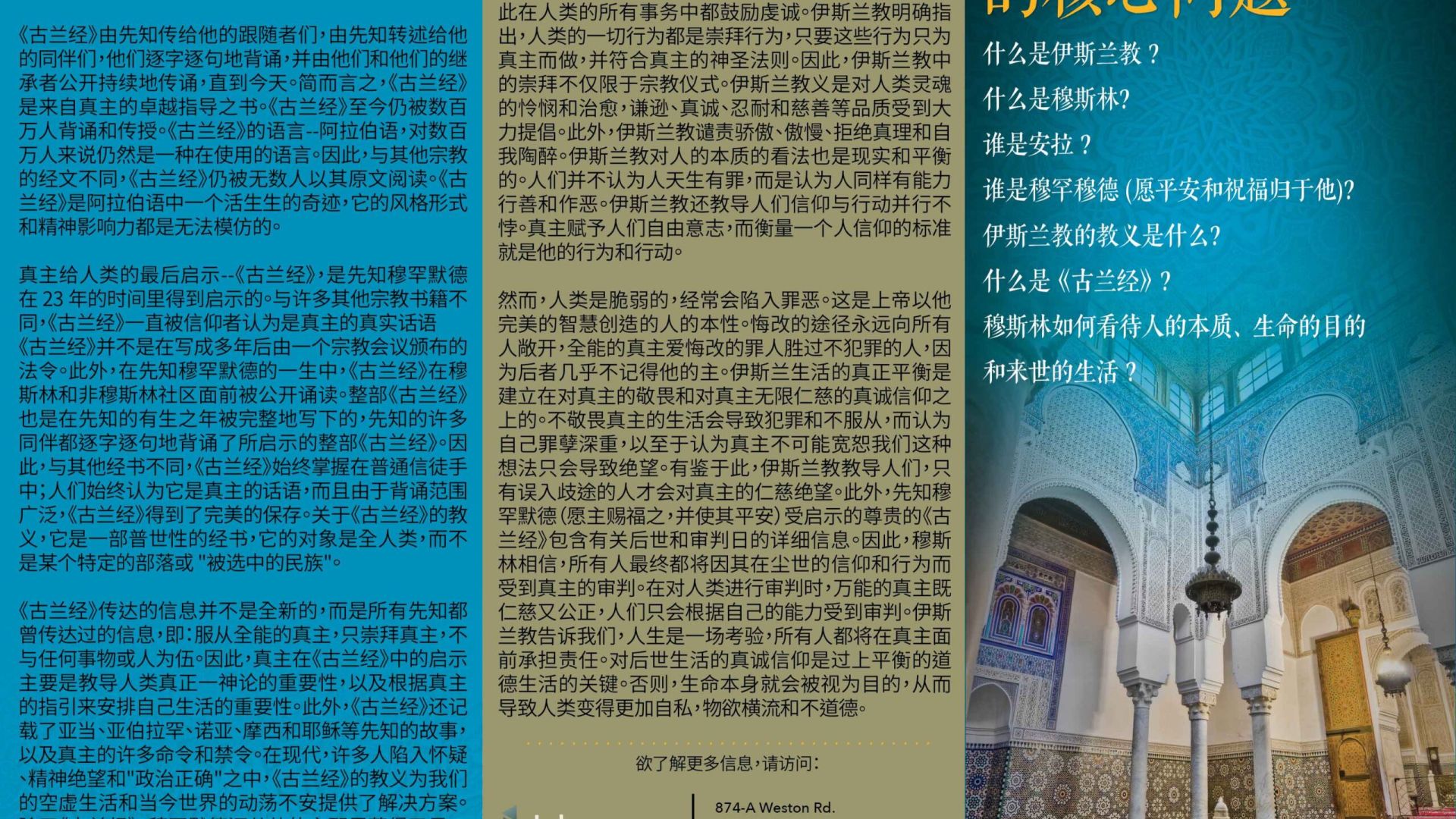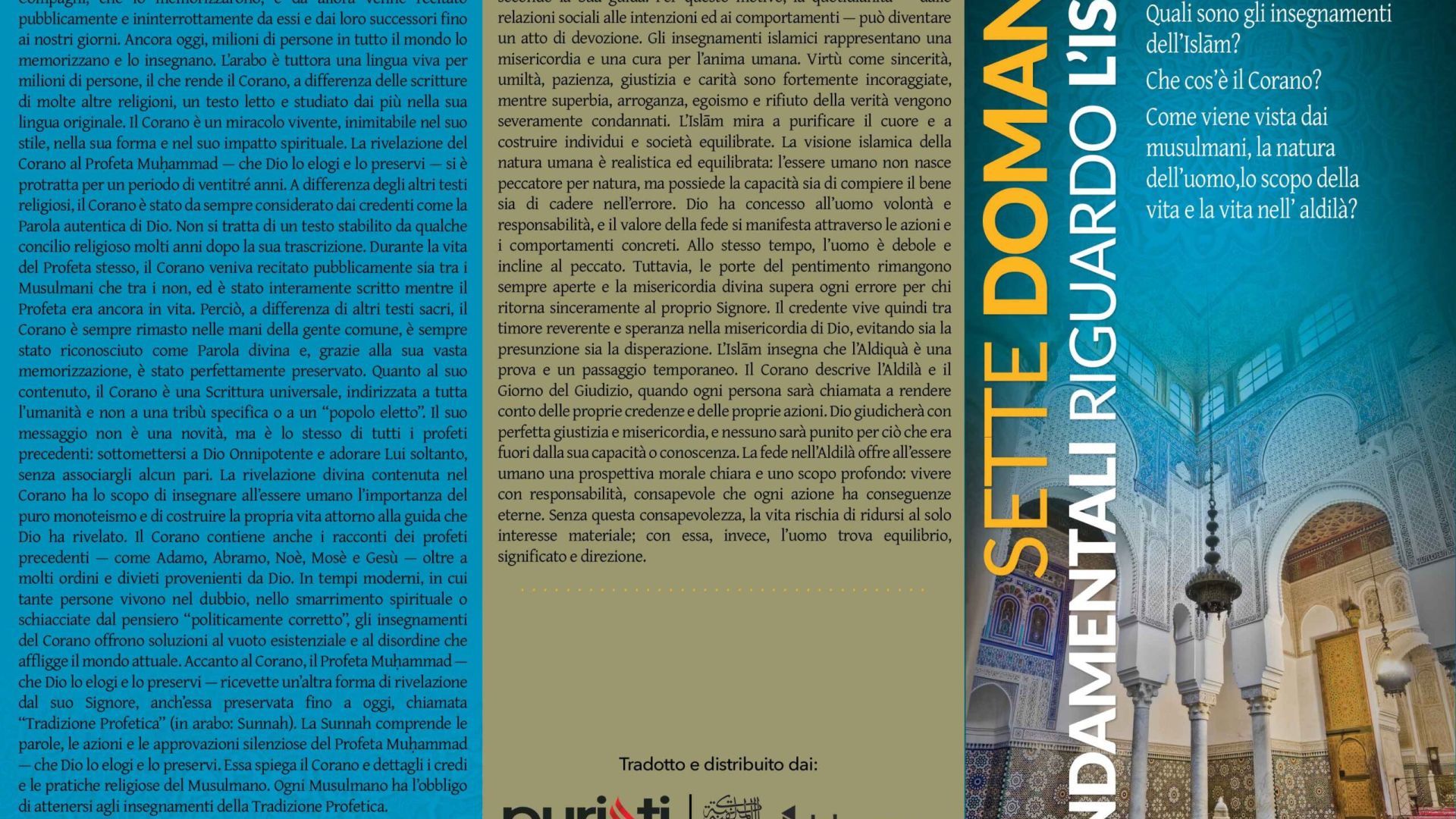The Rulings and Mannerisms of Notifying the Imām of a Mistake or Need While Praying
Imām Muḥammad ibn Ṣāliḥ al-ʿUthaymīn
Instances in which the imām should be notified during prayer and the manner in which it is suitable for men and women to notify.
The Rulings and Mannerisms of Notifying the Imām of a Mistake or Need While Praying
Imām Muḥammad ibn Ṣāliḥ al-ʿUthaymīn
Instances in which the imām should be notified during prayer and the manner in which it is suitable for men and women to notify.


The Types of Notification in Ṣalāh
Whilst in ṣalāh, if a circumstance occurs wherein those being led need to notify the imām of something—regardless of whether this notification relates to the ṣalāh itself, or something entirely external to it—then they may do so. As for notifications that pertain to the ṣalāh, this could be, for example, if the imām mistakenly stands to pray a fifth rakʿah in a four-rakʿah ṣalāh (like Ẓuhr, Aṣr, or ʿIshāʾ), or standing to a fourth in a three-rakʿah ṣalāh (like Maghrib), or a third in a two-rakʿah ṣalāh (like Fajr). Regarding notifications that do not pertain to the ṣalāh being performed, these include, for example, if a person is requesting entry from outside by knocking the door. In both circumstances, the men being led may notify the imām by saying the tasbīḥ [i.e. the tasbīḥ: SubḥānAllāh (Glory be to Allāh)] aloud, while the women should clap their hands.
Saying the Tasbīḥ of Notification Multiple Times
If the imām understands what the notification pertains to after only a single tasbīḥ, then the men being led should suffice by saying it only once. This is because the tasbīḥ, in this context, is considered a form of remembrance that is being mentioned for a specific reason. Once that reason has been fulfilled, the remembrance itself is no longer legislated. However, if the imām is unable to understand what the notification pertains to, then the men praying behind him may repeat this tasbīḥ a second or third time until he understands. This tasbīḥ is legislated for all men, although the attainment of puberty is not considered a prerequisite here. Therefore, it should be said by all males, regardless of whether they are fully grown, or pre-pubescent.
The Wisdom in Differentiating the Means of Notification Between Men and Women
As for the difference in ruling between men and women such that women clap their hands instead of saying the tasbīḥ aloud, the wisdom behind this differentiation should be plainly evident which is that it is most inappropriate for the voice of women to be heard in the company of men [who are not from among their relatives or spouse]. This is especially unsuitable whilst the ṣalāh is being performed. For if a woman was to say the tasbīḥ aloud, it could result in the sowing of impure thoughts within the hearts of the men present whilst they are in ṣalāh. This is especially true if the female voice being heard is naturally soft and tender. As the Prophet (صلى الله عليه وسلم) said: “Certainly, [the whispers of] Shayṭān flow through the minds of the children of Ādam in a manner akin to their blood”1 and he (صلى الله عليه وسلم) also related that he has not left a source of tribulation that is more detrimental to men than what they are subjected to from their female counterparts.2
The Means of Female Notification in the Company of Other Women
The ruling on women clapping their hands in this circumstance has not been made with the caveat of men being present. Therefore, it is most apparent that they should clap their hands even in the company of other women, in the absence of men. Although some scholars have said that if there are no men present, then women should say the tasbīḥ aloud as men do. They justify this position saying that tasbīḥ is a fundamentally legislated form of remembrance in ṣalāh as opposed to clapping which is never done in ṣalāh in any other situation. Here, women have only resorted to clapping their hands due to the presence of men because this clapping is considered a better means of preserving their chastity and modesty, an action that is more distant from the sowing of impure thoughts.
The basic fundamental evidence that applies to this issue is the statement of the Prophet (صلى الله عليه وسلم): “Whoever is presented with a need [for notification] whilst praying should say the tasbīḥ. For by saying the tasbīḥ, he would have garnered attention. As for clapping, it is only for the womenfolk”.3 In consideration of this ḥadīth, it is most apparent that women should clap regardless of whether they are in the company of men or other women. However, upon closer examination, we may conclude that the ḥadīth is referring specifically to the circumstance in which men and women are praying in the same congregation as the ruling for both are mentioned in a single statement. Therefore, the issue being addressed is a congregation that is composed of both men and women, such that men are to say the tasbīḥ aloud and women are to clap their hands. In actuality, the ruling on this issue is not definite:
- Those who interpret the ḥadīth by taking into account the generality of its wording will claim that women should clap their hands regardless of who is present.
- Those who analyse the ḥadīth by taking into account the circumstance in which the statement was made will claim that this was said specifically for a congregation composed of both genders, especially considering the aforementioned justification that clapping is not among the fundamental actions of ṣalāh, while the tasbīḥ is among its actions.
The Wisdom Behind Specifying the Tasbīḥ as a Means of Notification
[Q]: What is the wisdom behind the tasbīḥ specifically being used here as a means of notification instead of any other statement of remembrance?
[A]: The tasbīḥ acts as a notification to the imām of a deficiency in the ṣalāh being performed, occurring in relation to either forgetfulness or a mistake. It is therefore most appropriate that the notification of this error takes the form of tasbīḥ, which consists of declaring Allāh innocent from all deficiencies.
The Manner of Women Making a Notifying Clap in Ṣalāh
As for the manner of clapping, it is to slap the palm of one hand on the back of the other. Although some scholars say that it should be done by slapping the back of one hand on the palm of the other. While others claim it should be done in the normal manner by slapping the palm of one hand against the palm of the other. In any case, whichever methodology is followed, there is room for variation in this issue. The crux of this matter is that women clap their hands—regardless of the manner of this clapping—when in the company of men.
The Course of Action Taken If the Imām Fails to Understand the Notification
[Q]: If those praying behind the imām say the tasbīḥ aloud but the imām fails to understand what they are referring to, so they say the tasbīḥ a second time but he still fails to understand what they are attempting to communicate, perhaps, upon hearing the tasbīḥ, he surmises he should be standing then, upon standing, he hears another tasbīḥ, so he sits and so on. What should be done in such a situation?
[A]: Some scholars say that, in such a situation, it is permissible for those being led to inform the imām verbally of the specific error that was made. For example, while performing the ṣalāh, they should say [in Arabic]: “Irkaʿ! [Perform rukūʿ!]” or “Ijlis! [Sit!]” or “Qum! [Stand!]” and so on. Although scholars have differed regarding the validity of the ṣalāh of someone making such a statement while praying. Some scholars say that these statements do not invalidate the ṣalāh because they were only made to facilitate the ṣalāh being performed properly. In this context, these statements should not be designated as being from the normal speech of the children of Ādam [which is forbidden while performing ṣalāh]. That is, when these words were spoken, the person never intended to engage in the normal discourse that occurs among people. Rather, those statements were made for the sole purpose of correcting a deficiency that has affected the ṣalāh. They evidence this stance with the ḥadīth in which the companion Dhu al-Yadayn said to the Prophet (صلى الله عليه وسلم) [following the ṣalāh being performed with a fewer number of rakʿah]: “Yes! You have forgotten” to which the Prophet (صلى الله عليه وسلم) replied: “Is the matter as described by Dhū al-Yadayn?”4 Here, these words were meant as a form of discourse occurring among people, but they were only said for the purpose of rectifying the ṣalāh that was performed.
The second opinion in this matter is that any discourse occurring during the ṣalāh will result in its invalidation due to the general statement of the Prophet (صلى الله عليه وسلم): “Certainly, uttering the words of the people is most unbefitting during the performance of ṣalāh5. Also, the Prophet (صلى الله عليه وسلم) commanded us to say the tasbīḥ aloud in these circumstances. If it was permissible for us to speak normally for the purpose of rectifying the ṣalāh, he (صلى الله عليه وسلم) would have commanded us to do so, especially because simply informing the imām of the specific mistake committed in the form of clear statements is much easier to understand and therefore closer to the accomplishment of the intended goal of the tasbīḥ itself. However, the mere fact that he (صلى الله عليه وسلم) commanded the men to say the tasbīḥ aloud instead of simply telling the imām what has occurred should act as an indication that this type of discourse is impermissible. As the rectification of the ṣalāh is predicated on this clear communication between the imām and those he is leading but men have been forbidden from simply talking to the imām. This must be because such talking, even if it was only for the rectification of the ṣalāh being performed, is forbidden. The rationale for this stance is undoubtedly quite strong and supports the view that notification of the imām in the form of intentional discourse will invalidate the ṣalāh being performed.
The proponents of this opinion may answer the aforementioned ḥadīth of Dhū al-Yadayn by pointing out that the discourse that is related in the ḥadīth occurred after the conclusion of the ṣālāh, which means that the Prophet (صلى الله عليه وسلم) did not know that he was still meant to be performing ṣālāh when he made that statement. Rather, he (صلى الله عليه وسلم) surmised the ṣalāh had been concluded, regarding which he (صلى الله عليه وسلم) said: “I did not forget, nor was the ṣalāh meant to be shortened”. Then, when the other members of the congregation said: “Dhū al-Yadayn has spoken the truth” or “Yes [when asked “Is the matter as described by Dhū al-Yadayn?]”, he (صلى الله عليه وسلم) did not speak but simply stepped forward and prayed the remaining portion of the ṣalāh. There is a clear difference between a person who intentionally speaks while performing ṣalāh, only speaking for the purpose of rectifying that ṣalāh and another who speaks while uncertain that the ṣalāh was concluded, speaking while fully believing that he was not in ṣalāh and that his prayer had completely finished. In this way, this ḥadīth does not completely support the first opinion.
[Q]: If we adopt the opinion that notifying the imām by speaking to him is impermissible, and he is unable to comprehend what he is being notified of by the tasbīḥ, then would our continual repeating of the tasbīḥ not be a form of mockery? Such that we say “Subḥānallāh”, so the imām stands, then we say it again and he sits, then again so he stands up again? In a situation that lacks alternatives, is there not a dire need for us to speak with words?
[A]: Perhaps in such an extenuating circumstance, we may deem it permissible for the one notifying the imām to speak. However, following the notification, this speaker must restart his ṣalāh from the beginning. This is because he has spoken for the purpose of correcting the congregational ṣalāh being performed but, in doing so, he has invalidated his own ṣalāh which means he must restart it. His speaking in this context is considered a public service to the congregation as a whole, and the greater good of the entire congregation should be given precedence over what is best for a single individual. Also, if the imām was to be left without understanding the notification, this may lead to the ṣalāh being considered invalid, or constitute this speaker having to abandon the imām anyways.
Other Means of Notification
[Q]: Is it permissible to notify the imām in any other manner besides the tasbīḥ?
[A]: Yes, it is permissible for the praying person to notify others by clearing his throat. The evidence of this is the ḥadīth of ʿAlī ibn Abī Ṭālib (رضي الله عنه) in which he would visit the Messenger (صلى الله عليه وسلم) twice a day—once in the night and another in the daytime. If ʿAlī (رضي الله عنه) entered while he (صلى الله عليه وسلم) was praying, the Messenger (صلى الله عليه وسلم) would clear his throat as a means of notifying him that he was performing ṣalāh.6 This is, therefore, considered another means of notification for the one performing ṣalāh.7
Another permissible means of notification is to recite the Qurʾān aloud. For example, if a person knocks your door, or calls your name while you are performing ṣalāh, you may simply begin reciting aloud to notify this person that you are praying. Although the best form of notification is the tasbīh because it is consistent with the explicit order of the Prophet (صلى الله عليه وسلم).
Notifying Other Members of the Congregation Besides the Imām
[Q]: Is it permissible for the person performing ṣalāh to notify members of the congregation besides the imām whilst praying? For example, if one is praying beside a person who is constantly moving such that it distracts him?
[A]: Yes, it is permissible for this person to notify his neighbor because this notification is a means towards rectifying the state of his own ṣalāh as well as that of his neighbor. Even if, hypothetically, this notification only proffered benefit in the form of rectifying the ṣalāh of this neighbour [because the praying person notifying him is able to concentrate in spite of this excessive movement], it would still be perfectly permissible to notify him. The evidence of this is the aforementioned ḥadīth in which the Prophet (صلى الله عليه وسلم) made a general statement: “Whoever is presented with a need [for notification]”. The reason for him making this statement was that Muʿāwiyah ibn al-Ḥakam (رضي الله عنه) approached the Prophet (صلى الله عليه وسلم) while he was praying, so he joined him. Then, a member of the congregation sneezed and said: “Alḥamdulillāh (All praise and thanks be for Allāh)” to which Muʿāwiyah (رضي الله عنه) replied: “Yarḥamukallāh (may Allāh have mercy upon you)”. Upon him saying this, the other members of the congregation began staring at him as a way of objecting to his statement. So he (رضي الله عنه) said: “Woe to my bereaved mother upon the loss of her son [Arabic expression of surprise, astonishment and dismay]!” So the members of the congregation began slapping their thighs to silence him, so he remained silent. Then, when the Prophet (صلى الله عليه وسلم) had concluded the ṣalāh with the taslīm, he called him and said: “Certainly, uttering the words of the people is most unbefitting during the performance of ṣalāh. It consists only of tasbīḥ, takbīr [saying “Allāhu akbar (Allāh is the greatest)] and the recitation of the Qurʾān.” He (صلى الله عليه وسلم) then said to the other companions [addressing them slapping their thighs]: “Upon being presented with a need [for notification] whilst praying, the men should say the tasbīh and the women should clap”. Note here that the ḥadīth involves notification that pertains to the ṣalāh of another member of the congregation, even though—in a way—it also pertains to their own ṣalāh. This is because his actions would have been the source of distraction for them from their own ṣalāh. For this reason, the Prophet (صلى الله عليه وسلم) never forbade the companions from objecting to the actions of Muʿāwiyah [but, rather, only the method of their objection to him].
Endnotes:
[1] Authentic: narrated by al-Bukhārī: 3281 and Muslim: 2175.
[2] Authentic: narrated by al-Bukhārī: 5096 and Muslim: 2740.
[3] Authentic: narrated by al-Bukhārī: 684 and Muslim: 421.
[4] Authentic: narrated by al-Bukhārī: 482 and Muslim: 573.
[5] Authentic: narrated by Muslim: 537.
[6] Weak: narrated by al-Nasāʾī: 1212 and Ibn Mājah: 3708 and graded weak by Shaykh al-Albānī in Ḍaʿīf Sunan al-Nasāʾī: 59.
[7] Translator note: The ḥadīth is weak, although this was considered a valid means of notification by Shaykh Ibn ʿUthaymīn here and Shaykh Ibn Bāz (see Majmūʿ al-Fatāwá 11:160, Tuḥfat al-Ikhwān: 87, Nūr ʿalá al-Darb 9:285) both without mentioning the weakness of the ḥadīth of ʿAlī (رضي الله عنه). Imām al-Albānī said: “Clearing one’s throat does not invalidate the ṣalāh because it is not considered a form of discourse, especially if it is only done for a valid reason. If we were to evidence this stance, we would have used the ḥadīth of ʿAli (رضي الله عنه) except that its chain of narrators is weak and we have no need to evidence our stance using weak ḥadith. It is sufficient for us to merely state that the clearing of one’s throat is not considered a form of speech, and there is only evidence to prove that speech is most unbefitting in ṣalāh. And only what is considered unbefitting for it must result in its invalidation”. See Jāmiʿ Turāth 3:85.
Source: Al-Sharḥ al-Mumtiʿ 3:262-268
Translated by: Riyāḍ al-Kanadī
Most Popular: Last 30 Days

Everyone’s Speech Is Subject to Acceptance or Rejection Except the Prophet (ﷺ)











